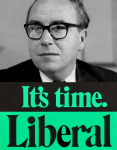- Location
- Op een dag, Nederland.
- Pronouns
- she/her & ne/nem

We, the assembled representatives of the Equestrian Ponykind, do declare that all power to govern this realm comes from the divine nature of our Holy Princesses, Celestia and Luna. Long may they reign, long may the sun and moon rise in turn, and may none of our actions counteract their Divine Guidance.
As part of our service as Their Majesties’ ever-faithful and true assistants in governance, we have submitted this humble proposal for constitutional reform which we earnestly hope will receive their approval.
Noting the limitations of unicameralism in representing and working for the interests of all ponies, we humbly propose the creation of two different chambers, one to represent the important aspects of our society, the other for ponykind as a whole and the Four Races. The two chambers assembled shall be known as the Paddock.
The first chamber shall be named the High Loft and be composed of four different measures. The first measure shall be the totality of all ponies of good breeding and good character that the Divine Princesses had seen fit to ennoble, and their heirs thereof. Any future nobleponies bearing an honourable title shall be given a seat in the High Loft as well on the date of their ennoblement, to be held by their heirs and their heirs’ heirs for as long as their lineages hold.
In place of strife, we seek to bring harmony to all of Equestria. We seek to ensure that the workings of government rises above disputes that cloud our days. There shall be two councils set up, one elected by every pony that has registered their status as a business-owner and hence representing the interest of those who manage and those who seek to enter the glorious world of entrepreneurship. The other council shall be elected by every worker registered with a union and seek to represent the working pony and the interest of those who toil for the nation’s prosperity.
Those two councils, the Business and Trade Union Councils respectively, shall be of the same number of councillors and together make up the National Arbitration Board which shall be the court of final appeal on any labour dispute. It is hoped by the drafters of this bill that such a structure encourages those who produce and those who manage to work together for the common interest of the Realm. To ensure the interests of the two are represented further, they shall be the second and third measure of composure to the High Loft, appointing Economic and Labour delegates.
In the interests of efficient government and ensuring the will of the Princesses are communicated greatly to the ponies of Equestria, no matter where they be, this bill will be reorganising the local governments into ‘ranges’, each governed by a ‘derby’, a paddock in miniature in other words. They shall be unicameral at their commission, but be granted permission to reorganise themselves if they so desire, and be supervised by a ‘vicereine’ appointed by the Princesses to communicate their words and guidance to the range in question. The vicereine shall appoint an avener to be head of the range government, taking the Princesses’ advice and the derby’s leanings in consideration. The avener will nominate people to be part of their cabinet and have the derby confirm them.
The fourth and final measure of composure to the High Loft shall be ponies directly elected on basis of the range boundaries. Those ponies shall be referred to as ‘lofters-elect’. In the case of any ponies suffering from demise in their office as lofter-elect, the range derby in question is granted permission to appoint a substitute until a by-election is held for a permanent successor. All four measures of composure is mandated to be equal in presence in the High Loft.
The second chamber, and the primary one of governance, shall be known as the Stable of Commons, which shall be the legal successor to the current chamber. In the interest of adequate and equitable representation of the races of Equestria, the measure of election used in the 1009 by-elections chosen in the interest of accelerating the representation of thestrals to the present chamber shall be extended to other races and set in perpetuity.
Any previous customs set for the present chamber’s conduct and governance of its own business shall be considered extant in the Stable of Commons as its successor unless measured otherwise by this bill or any future bills passed by the Stable for its own management. Internal management of paddockian conduct in either the Loft or the Stable shall be exclusively the domain of the relevant chamber.
When the Stable considers a bill worthy of being presented to the Princesses, it shall be first sent to the High Loft for review. The High Loft can deem it worthy in their eyes too, or it can send it back for revision. In the case they send the bill back, the High Loft must give clear reasons why it is not worthy in their eyes and offer substantial recommendations for alteration. The Stable may not be able to send the bill back to the Loft without alteration. No bill may be presented to the Princesses unless it have had both chambers of the Paddock’s stamp of approval. This is hoped to avoid or lessen any clash of the Princesses with the Paddock as we have experienced such too much recently.
The sun and moon are two halves of the same whole, we cannot have a day without sun nor a night without moon. Any bill presented to the Divine Princesses must have both of their approvals for it to become a full-fledged law. If one or both of the Princesses think such a bill is not worthy, she or they may send the bill back to the Paddock with clear directives they deem in need of revision.
In extraordinary circumstances, the Paddock may be prorogued in the interests of national order. Such a decision needs to be true in the day and in the night, and hence shall have both of the princesses’ approval before such a decision becomes true. The Paddock may be re-assembled with the stamp of approval from one Princess, but be treated as a ‘plot paddock’ with limited powers until the second Princess grants assent to it being formed as a full paddock.
The two chambers can also be subjected to election if both of the Princesses deem it in need of renewal. They can subject the Stable, the Loft, or both together, to a stamp election. If the Loft is subject, it means that the lofters-elect and the business and union councils are all up for election once more. If the Stable is subject, it means that all ponies elected are now subject to a new election by the measure of election as legally set out in law.
The Divine Princesses have seen fit to appoint a pony of good stature in the past to govern the Realm on their behalf, the High Chancellors. Such a laudable tradition shall be continued, with the new position of Cheval Regent superseding the position of High Chancellor, and shall be determined in the same manner, namely that of the Princesses, both of them, coming to an agreement on who is the most fit pony to govern on their behalf.
The Cheval Regent shall present their choices for their cabinet to the Stable and if each of their choices enjoy a majority of the Stable in their favour, they shall be able to serve in the position for as long as the Cheval Regent serves their term, or unto their resignation. Special disposition is made to the position of Leader of the High Loft, which shall be selected by that chamber alone.
The Cheval Regent can recommend the Princesses declare a state of emergency with the backing of a majority of their cabinet. In a state of emergency, the paddock is prorogued and all power of governance lies with the cabinet and the Cheval Regent, all on behalf of the Princesses. The Princesses must agree as one to grant the Cheval Regent this request. Either one of the Princesses may break this state of emergency if they so deem such. The state of emergency can be no longer than ten years, and cannot be called again without a renewal of the paddock.
All of those reforms above are designed to further our assistance of the Divine Princesses, for without them the sun and moon would not rise in their turn. It is from them that we see the glory of Equestria, and it is ultimately from them and their benevolent reign that we are assembled here, for we are nothing but servants sent by ponykind to serve our beloved Princesses in the arduous task of governing the greatest Realm in the world, the Holy Principality of Equestria.
May those reforms bring around an age of peace, prosperity and harmony to all ponykind, and make the Divine Princesses smile once more!
As part of our service as Their Majesties’ ever-faithful and true assistants in governance, we have submitted this humble proposal for constitutional reform which we earnestly hope will receive their approval.
Noting the limitations of unicameralism in representing and working for the interests of all ponies, we humbly propose the creation of two different chambers, one to represent the important aspects of our society, the other for ponykind as a whole and the Four Races. The two chambers assembled shall be known as the Paddock.
The first chamber shall be named the High Loft and be composed of four different measures. The first measure shall be the totality of all ponies of good breeding and good character that the Divine Princesses had seen fit to ennoble, and their heirs thereof. Any future nobleponies bearing an honourable title shall be given a seat in the High Loft as well on the date of their ennoblement, to be held by their heirs and their heirs’ heirs for as long as their lineages hold.
In place of strife, we seek to bring harmony to all of Equestria. We seek to ensure that the workings of government rises above disputes that cloud our days. There shall be two councils set up, one elected by every pony that has registered their status as a business-owner and hence representing the interest of those who manage and those who seek to enter the glorious world of entrepreneurship. The other council shall be elected by every worker registered with a union and seek to represent the working pony and the interest of those who toil for the nation’s prosperity.
Those two councils, the Business and Trade Union Councils respectively, shall be of the same number of councillors and together make up the National Arbitration Board which shall be the court of final appeal on any labour dispute. It is hoped by the drafters of this bill that such a structure encourages those who produce and those who manage to work together for the common interest of the Realm. To ensure the interests of the two are represented further, they shall be the second and third measure of composure to the High Loft, appointing Economic and Labour delegates.
In the interests of efficient government and ensuring the will of the Princesses are communicated greatly to the ponies of Equestria, no matter where they be, this bill will be reorganising the local governments into ‘ranges’, each governed by a ‘derby’, a paddock in miniature in other words. They shall be unicameral at their commission, but be granted permission to reorganise themselves if they so desire, and be supervised by a ‘vicereine’ appointed by the Princesses to communicate their words and guidance to the range in question. The vicereine shall appoint an avener to be head of the range government, taking the Princesses’ advice and the derby’s leanings in consideration. The avener will nominate people to be part of their cabinet and have the derby confirm them.
The fourth and final measure of composure to the High Loft shall be ponies directly elected on basis of the range boundaries. Those ponies shall be referred to as ‘lofters-elect’. In the case of any ponies suffering from demise in their office as lofter-elect, the range derby in question is granted permission to appoint a substitute until a by-election is held for a permanent successor. All four measures of composure is mandated to be equal in presence in the High Loft.
The second chamber, and the primary one of governance, shall be known as the Stable of Commons, which shall be the legal successor to the current chamber. In the interest of adequate and equitable representation of the races of Equestria, the measure of election used in the 1009 by-elections chosen in the interest of accelerating the representation of thestrals to the present chamber shall be extended to other races and set in perpetuity.
Any previous customs set for the present chamber’s conduct and governance of its own business shall be considered extant in the Stable of Commons as its successor unless measured otherwise by this bill or any future bills passed by the Stable for its own management. Internal management of paddockian conduct in either the Loft or the Stable shall be exclusively the domain of the relevant chamber.
When the Stable considers a bill worthy of being presented to the Princesses, it shall be first sent to the High Loft for review. The High Loft can deem it worthy in their eyes too, or it can send it back for revision. In the case they send the bill back, the High Loft must give clear reasons why it is not worthy in their eyes and offer substantial recommendations for alteration. The Stable may not be able to send the bill back to the Loft without alteration. No bill may be presented to the Princesses unless it have had both chambers of the Paddock’s stamp of approval. This is hoped to avoid or lessen any clash of the Princesses with the Paddock as we have experienced such too much recently.
The sun and moon are two halves of the same whole, we cannot have a day without sun nor a night without moon. Any bill presented to the Divine Princesses must have both of their approvals for it to become a full-fledged law. If one or both of the Princesses think such a bill is not worthy, she or they may send the bill back to the Paddock with clear directives they deem in need of revision.
In extraordinary circumstances, the Paddock may be prorogued in the interests of national order. Such a decision needs to be true in the day and in the night, and hence shall have both of the princesses’ approval before such a decision becomes true. The Paddock may be re-assembled with the stamp of approval from one Princess, but be treated as a ‘plot paddock’ with limited powers until the second Princess grants assent to it being formed as a full paddock.
The two chambers can also be subjected to election if both of the Princesses deem it in need of renewal. They can subject the Stable, the Loft, or both together, to a stamp election. If the Loft is subject, it means that the lofters-elect and the business and union councils are all up for election once more. If the Stable is subject, it means that all ponies elected are now subject to a new election by the measure of election as legally set out in law.
The Divine Princesses have seen fit to appoint a pony of good stature in the past to govern the Realm on their behalf, the High Chancellors. Such a laudable tradition shall be continued, with the new position of Cheval Regent superseding the position of High Chancellor, and shall be determined in the same manner, namely that of the Princesses, both of them, coming to an agreement on who is the most fit pony to govern on their behalf.
The Cheval Regent shall present their choices for their cabinet to the Stable and if each of their choices enjoy a majority of the Stable in their favour, they shall be able to serve in the position for as long as the Cheval Regent serves their term, or unto their resignation. Special disposition is made to the position of Leader of the High Loft, which shall be selected by that chamber alone.
The Cheval Regent can recommend the Princesses declare a state of emergency with the backing of a majority of their cabinet. In a state of emergency, the paddock is prorogued and all power of governance lies with the cabinet and the Cheval Regent, all on behalf of the Princesses. The Princesses must agree as one to grant the Cheval Regent this request. Either one of the Princesses may break this state of emergency if they so deem such. The state of emergency can be no longer than ten years, and cannot be called again without a renewal of the paddock.
All of those reforms above are designed to further our assistance of the Divine Princesses, for without them the sun and moon would not rise in their turn. It is from them that we see the glory of Equestria, and it is ultimately from them and their benevolent reign that we are assembled here, for we are nothing but servants sent by ponykind to serve our beloved Princesses in the arduous task of governing the greatest Realm in the world, the Holy Principality of Equestria.
May those reforms bring around an age of peace, prosperity and harmony to all ponykind, and make the Divine Princesses smile once more!
Last edited:










